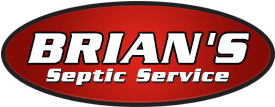Septic System Maintenance
Why Maintain Your System?
There are three important health reasons for maintaining your septic system.
- The first reason is the health of your pocket book. Poor maintenance results in failed systems requiring repairs at a minimum and sometimes replacement. Repairs or replacement costs can be thousands of dollars, whereas a periodic inspection and pumping costs about $300-$400.
- The second reason is the health of your family, your community and the environment. Untreated sewage contains disease-causing bacteria and viruses, as well as unhealthy amounts of nitrate and other chemicals. Failed septic systems can allow untreated sewage to seep into wells, groundwater, and surface waterbodies, where people get their water and recreate.
- The third reason is the health of your economy. Contamination of waterbodies by failed septic systems pollutes water supplies, closes shellfish beds and recreation areas, and creates offensive odors. Quality of life, recreations opportunities, livelihoods and tourism decline, and with them go the property values and economic vitality of the area.
How Do You Maintain Your System?
Proper care of your system requires day-to-day management as well as periodic maintenance. It also requires that you know where your system is located. The more you know about how your system operates and how it should be maintained, the better able you will be to protect your investment in your home and property, protect your family's health, and protect your environment.
In Order To Maintain Your System, the tank needs to be accessible for pumping and the drainfield should be protected. Locating your system is not always an easy task. If you do not already have one, contact your county health department for a copy of your septic system permit, which will indicate the approximate location of the system and the size of the tank. The completed permit may have a diagram of the actual system installation and include other information about your system. Keep your permit in safe location for future reference and to pass on to the next homeowner.
